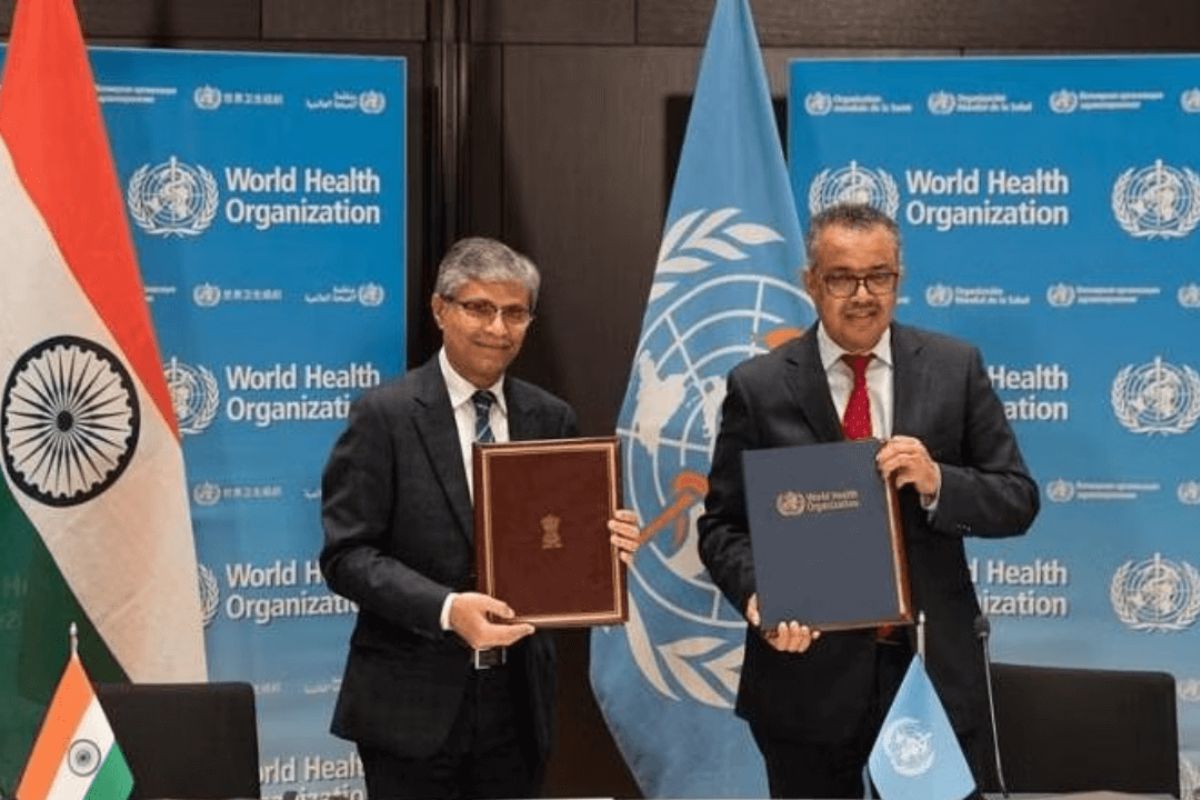BTS’ Jimin breaks tie with bandmate Jungkook on Billboard chart
BTS' Jimin breaks his historic tie with bandmate Jungkook on the Billboard Artist 100 chart. Jimin is now the longest-charting K-pop sensation on the coveted chart.
It reiterated that India as host of the WHO Global Traditional Medicine Centre at Jamnagar, Gujarat has an important role in scaling up WHO’s capacities to support member states and stakeholders in taking forward the summit action agenda and other relevant priorities.

Releasing the outcome of the first Traditional Medicine Summit held in Gandhinagar, the World Health Organization (WHO) has reaffirmed global commitments towards indigenous knowledge, biodiversity, and traditional, complementary, and integrative medicine.
In the ”Gujarat declaration”, the world body underlined that the application of rigorous scientific methods was the need of the hour to better understand, assess and, where appropriate, apply more holistic, context-specific, complex, and personalized approaches for health and well-being for all.
Advertisement
It reiterated that India as host of the WHO Global Traditional Medicine Centre at Jamnagar, Gujarat has an important role in scaling up WHO’s capacities to support member states and stakeholders in taking forward the summit action agenda and other relevant priorities.
Advertisement
The action points of the two-day WHO Traditional Medicine Global Summit 2023 are based on the evidence, discussions and outcomes presented at the summit. Deliberations were done on varied topics like Health and well-being of people and the planet, research and evidence, universal health coverage, primary health care and health systems, Data & routine information systems, digital health frontiers, biodiversity and sustainability, human rights, equity and ethics.
Union minister of Ayush Sarbananda Sonowal said, “Gujarat declaration is testimony of our prime minister Narendra Modi’s commitment to promote our ancient knowledge of Traditional Medicine system. Through collaborative efforts and sustainable practices, we can ensure a healthier future for generations to come.”
During the WHO Traditional Medicine global Summit, Director General of the World Health Organization Dr Tedros Adhanom Ghebreyesus, said that the “Gujarat Declaration” will serve as a catalyst to harness the potential of traditional medicine through the lens of science and will focus on the integration of traditional medicines in national health systems and help unlock the power of traditional medicine.
The declaration talked about scaling up efforts to further implement evidence-based TCIM (Traditional Complementary Integrative Medicine) interventions and approaches in support of the goal of universal health coverage (UHC) and all health-related Sustainable Development Goals (SDGs). It stated the role of multi-regional, multi-disciplinary and multi-stakeholder collaborations demonstrated at the Global Summit through the WHO GCTM that was aligned with and complementary to the work of WHO major offices, to maximize evidence-based benefits of TCIM in global health.
The highlight of the summit was how to enable the appropriate development and application of digital health technologies, and artificial intelligence (AI) in particular, to advance digital health resources on TCIM for people’s health and well-being.
The First global summit on Traditional Medicine was organised by the World Health Organization (WHO) and co-hosted by the Ministry of Ayush, on 17-18 August.
Advertisement